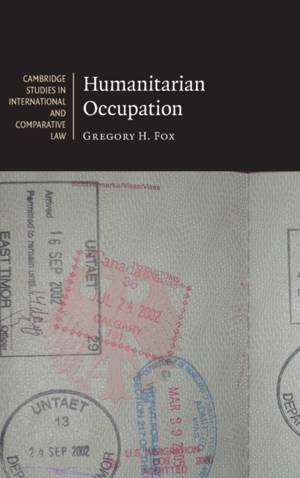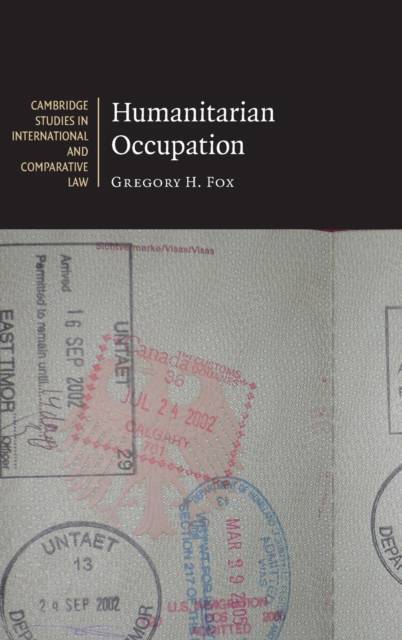
- Afhalen na 1 uur in een winkel met voorraad
- Gratis thuislevering in België vanaf € 30
- Ruim aanbod met 7 miljoen producten
- Afhalen na 1 uur in een winkel met voorraad
- Gratis thuislevering in België vanaf € 30
- Ruim aanbod met 7 miljoen producten
Zoeken
Omschrijving
This book analyzes a new phenomenon in international law: international organizations assuming the powers of a national government in order to reform political institutions. After reviewing the history of internationalized territories, this book asks two questions about these 'humanitarian occupations'. First, why did they occur? The book argues that the missions were part of a larger trend in international law to maintain existing states and their populations. The only way this could occur in these territories, which had all seen violent internal conflict, was for international administrators to take charge. Second, what is the legal justification for the missions? The book examines each of the existing justifications and finds them wanting. A new foundation is needed, one that takes account of the missions' authorisation by the UN Security Council and their pursuit of goals widely supported in the international community.
Specificaties
Betrokkenen
- Auteur(s):
- Uitgeverij:
Inhoud
- Aantal bladzijden:
- 336
- Taal:
- Engels
- Reeks:
- Reeksnummer:
- nr. 59
Eigenschappen
- Productcode (EAN):
- 9780521856003
- Verschijningsdatum:
- 17/03/2008
- Uitvoering:
- Hardcover
- Formaat:
- Genaaid
- Afmetingen:
- 152 mm x 229 mm
- Gewicht:
- 639 g

Alleen bij Standaard Boekhandel
+ 383 punten op je klantenkaart van Standaard Boekhandel
Beoordelingen
We publiceren alleen reviews die voldoen aan de voorwaarden voor reviews. Bekijk onze voorwaarden voor reviews.











